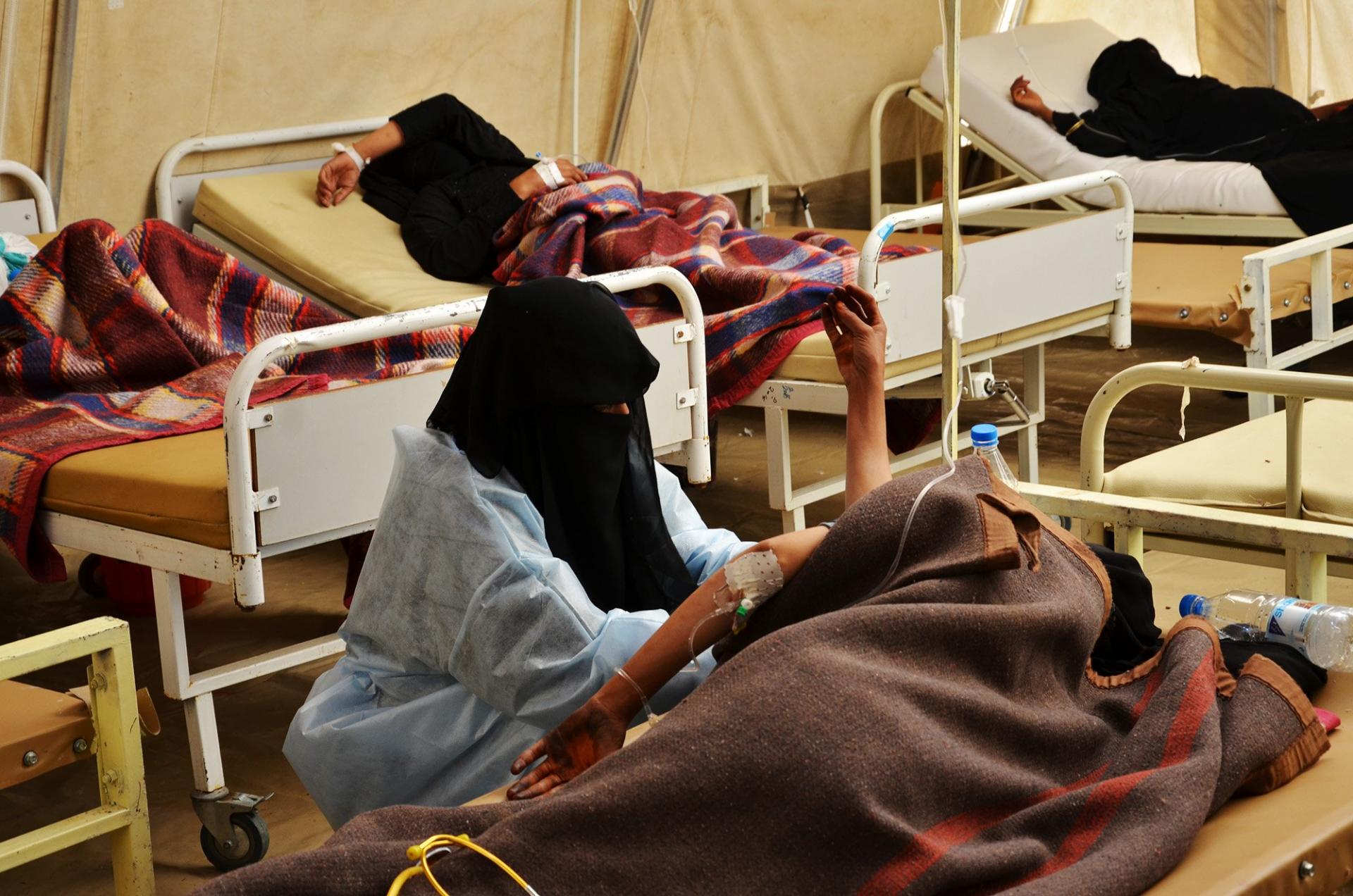When we first heard about the initial cholera cases, I remember panicking quietly for about 10 minutes and then pulling myself together. No one in that part of Yemen had ever seen cholera before.
I was there for six months, arriving on 1 April. I was less than a month into my assignment before cholera broke out.
It was one of the biggest outbreaks the world has seen.
At the start, it was a nightmare. Cases were coming in so fast; there were 10 to 20 people a day. Within 24 hours, we had set up a tent at Khamer hospital.
Hospitals closing
For the first few months, there were no other organisations there. We were on our own, trying to contain the outbreak. We didn’t have a second to stop and think – we had to react straight away.
Other agencies were waiting on supplies of funding. In that first month, thousands of people would have died without the MSF treatment centre.
"Suddenly, the outbreak hit the Khamer Valley. That’s when we knew we were in trouble."
MSF project coordinator
The extent of the cholera outbreak is a direct result of the conflict. For more than two years, the country has been bombed to pieces, and that means that healthcare facilities are not functioning.
Hospitals are shutting down faster than you can blink an eye. Families have nowhere to go – especially the poorest.
Suddenly, the outbreak hit the Khamer Valley. That’s when we knew we were in trouble. This is one of the poorest parts of Yemen. There’s no sanitation – everyone gets drinking water from the river.
Alone for the first three months
When it spread to the river, we knew it would be out of control. We set up four treatment centres and around nine or 10 oral rehydration points. We distributed hygiene kits in the valley – jerry cans, soap and chlorine.
I think one of the worst moments was seeing a child of about 12 years old being brought into the hospital. His family had travelled 10 hours to get to us. He had cholera, and he died just before reaching us.
Saleh Naser, 25: "My three-year-old daughter was infected with cholera, and I pledged one of my properties to cover the cost of transferring her to the hospital in Khamer."
It was three months of non-stop work. After the peak of the epidemic, the pressure finally started to ease. Other organisations received their funding and were able to step in. But during those first three months, we were alone.
But seeing how quickly people can be cured, how quickly they can recover was something else. You’d see young children in shock, barely breathing, that are so dehydrated and emaciated, that I was convinced they would die.
And then we gave them fluids or oral rehydration solution, and they recovered so fast. So to see them walking out, happy, laughing and playing, was just incredible. Especially when, a day before, you were quite sure they wouldn’t survive.
The end of the outbreak
Right at the end of the outbreak, we had a pregnant woman brought in with a severe case of cholera. For one day or two days, the staff never left her bedside. We really didn’t think she’d survive, or the baby she was hoping to deliver. She was a young woman, around 24 years old.
It was touch and go. We worked around the clock to try and save her. Then, at the end, just by giving fluids and not taking our eyes off her, she recovered.
Then, she gave birth to her baby. That was one of the most incredible things we’d seen. To see someone so sick and emaciated. To then see her recover, and give birth and deliver straight after that. It was miraculous.
"In the space of three months, I saw 16,000 people recover from cholera. That’s what kept me getting out of bed every day."
MSF Project Coordinator
The baby survived. The mother left in full health, with a beautiful, healthy baby girl.
The family had lost many other members due to the conflict. So for them to have something so positive coming out of their experience of conflict and disease was really beautiful.
I’ve worked with many other humanitarian organisations and I’ve seen many things. But from what I saw with MSF, from the start of the cholera outbreak, is something I’d never expected.
Everything that is being given by our donors is going towards basic things to keep people alive – chlorine, rehydration fluids, etc.
In the space of three months, I saw 16,000 people recover from cholera. That’s what kept me getting out of bed every day.
Find out more about MSF's work in Yemen.
